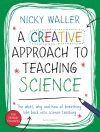‘Picturing myself dying in a way I choose myself seems so comforting, healing and heroic. I’d look at my wrists, watch the blood seeping, and be a spectator in my last act of self-determination. By having lost all my self-respect it seems like the last pride I own, determining the time I die.’-Kyra V., seventeen
Reading the confessions of a teenager contemplating suicide is uncomfortable, but we must do so to understand why self-harm has become epidemic, especially in the United States. What drives teenagers to self-harm? What makes death so attractive, so liberating, and so inevitable for so many? In Teenage Suicide Notes, sociologist Terry Williams pores over the writings of a diverse group of troubled youths to better grasp the motivations behind teenage suicide and to humanize those at risk of taking their own lives.
Williams evaluates young people in rural and urban contexts and across lines of race, class, gender, and sexual orientation. His approach, which combines sensitive portrayals with sociological analysis, adds a clarifying dimension to the fickle and often frustrating behavior of adolescents. Williams reads between the lines of his subjects’ seemingly straightforward reflections on alienation, agency, euphoria, and loss, and investigates how this cocktail of emotions can lead to suicide—or not. Rather than treating these notes as exceptional examples of self-expression, Williams situates them at the center of teenage life, linking them to abuse, violence, depression, anxiety, religion, peer pressure, sexual identity, and family dynamics. He captures the currents that turn self-destruction into an act of self-determination and proposes more effective solutions to resolving the suicide crisis.
Table of Content
List of Profiled Teens
Prologue
Introduction
1. Little Girl Lost: Kyra
2. The Fighter: Enoch
3. Overload: Candy
4. The Last Stand: David
5. Homo: Tucker
6. Escaping Death: Gita
7. Shock Jock: Boots
8. Cutter: Jill
9. On the Road: Cody
10. Born-Again Virgin: Gabriella
Afterword
Epilogue
Acknowledgments
Appendix 1: Ipe and Brownson
Appendix 2: Enoch and His Brother
Notes
Bibliography
Index
About the author
Terry Williams is a professor of sociology at the New School for Social Research. He specializes in teenage life and culture, drug abuse, crews and gangs, and violence and urban social policy. He is the author of
The Con Men: Hustling in New York City (Columbia, 2015);
Harlem Supers: The Social Life of a Community in Transition (2015);
Crackhouse: Notes from the End of the Line (1993); and
The Cocaine Kids: The Inside Story of a Teenage Drug Ring (1989); and is the founder and director of the Harlem Writers Crew Project, a multimedia approach to urban education for center city and rural youths.












